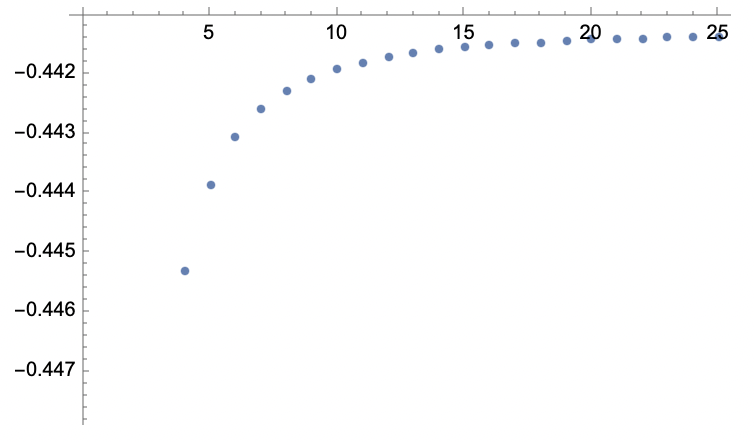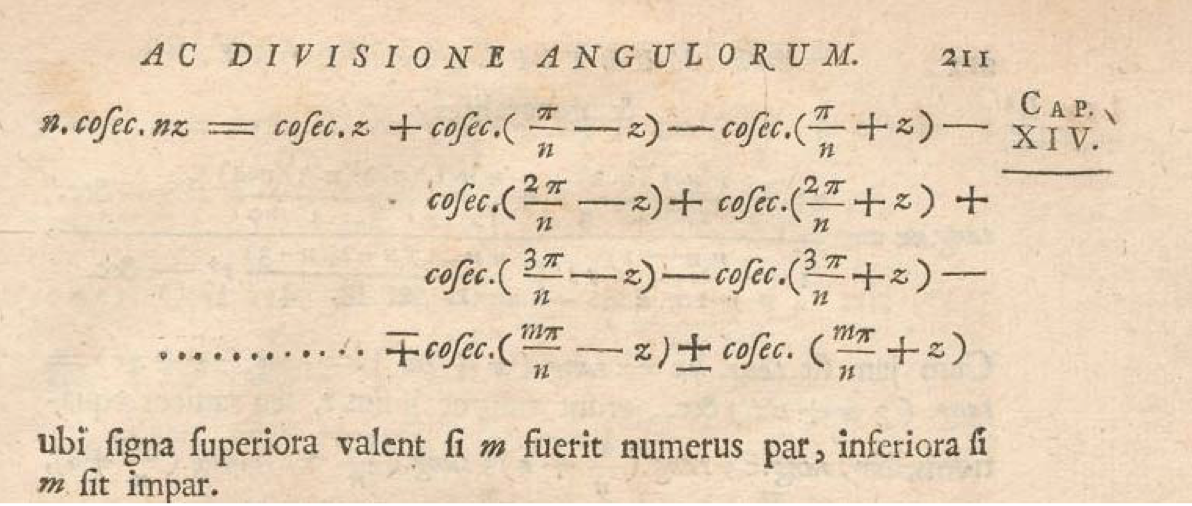The sum can be rewritten as an integral, by means of $$\frac{1}{\sin (\pi j/n)}=\frac{n}{\pi}\int_0^\infty\frac{s^{j-1}}{ s^n+1}\,ds,\;\;0<j<n,$$ $$\Rightarrow \sum_{j=1}^{n-1}\frac{(-1)^j}{\sin (\pi j/n)}=-\frac{n}{\pi}\int_0^\infty \frac{(-s)^{n-1}+1}{ (s+1)(s^n+1)}\,ds$$ $$\qquad=\begin{cases} 0&\text{for odd}\;\;n,\\ -\frac{2n}{\pi}\int_0^1\frac{s^{n-1}+1}{ (s+1)(s^n+1)}\,ds&\text{for even}\;\;n. \end{cases} $$ This does not simplify further for arbitrary even $n$.
The large-$n$ asymptotics for even $n=2p$ can be readily derived from the integral expression, $$\lim_{p\rightarrow\infty}\frac{1}{2p}\sum_{j=1}^{2p-1}\frac{(-1)^j}{\sin (\pi j/n)}= -\frac{2}{\pi}\int_0^1\frac{1}{s+1}\,ds=-\frac{2}{\pi}\ln 2=-0.441271$$
Here is a plot of $\frac{1}{2p}\sum_{j=1}^{2p-1}\frac{(-1)^j}{\sin (\pi j/n)}$ as a function of $p$.

As a curiosity, I note that the sum for odd $n$, with an offset $\phi$ in the argument of the sine, can be evaluated in closed form: $$\sum_{j=0}^{n-1}\frac{(-1)^j}{\sin(\phi+\pi j/n)}=\frac{n}{\sin n\phi},\;\;n=1,3,5,\ldots$$ This was derived by Euler, as discussed in On a finite sum of cosecants appearing in various problems

